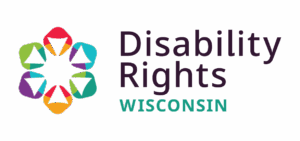Survival Coalition Call-in Days: what to keep, change, and add to the state budget for people with disabilities
The Joint Finance Committee has finished its work; the state budget must now be approved or amended further by the full State Senate and State Assembly. This is an important time to be in touch with your State Senator and Assembly Representative about your priorities for the state budget.
Survival Coalition is hosting call-in days this Tuesday, Wednesday, and Thursday for people with disabilities, family members and disability allies to call their state Senator and State Representative. The Legislature is scheduled to vote on the budget the week of June 24.
You can use the Legislative Hotline (1-800-362-9472) to connect directly with your state Senator and State Representative. Here is a full directory of state legislators from Wisconsin BPDD.
Let them know the good things that should be kept in the budget, what needs more funding, and what should be added to the budget:
| Tuesday, June 18th | Wednesday, June 19th | Thursday, June 20th |
|---|---|---|
Keep it in |
More funding needed |
Add what’s missing |
|
|
|
For more information about the issues in the State Budget, check out these fact sheets from the Survival Coalition:

